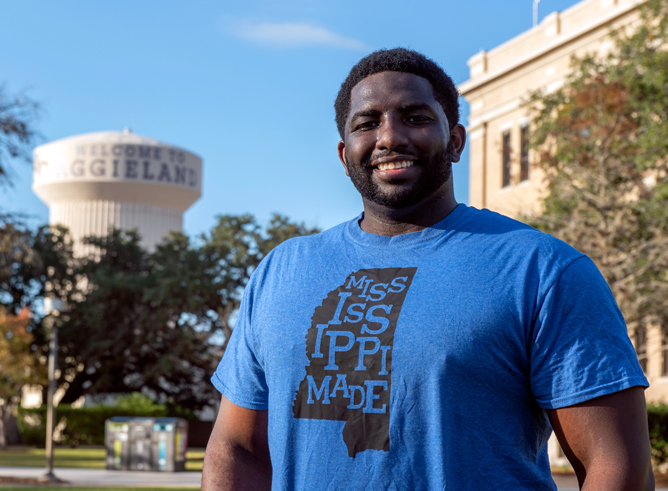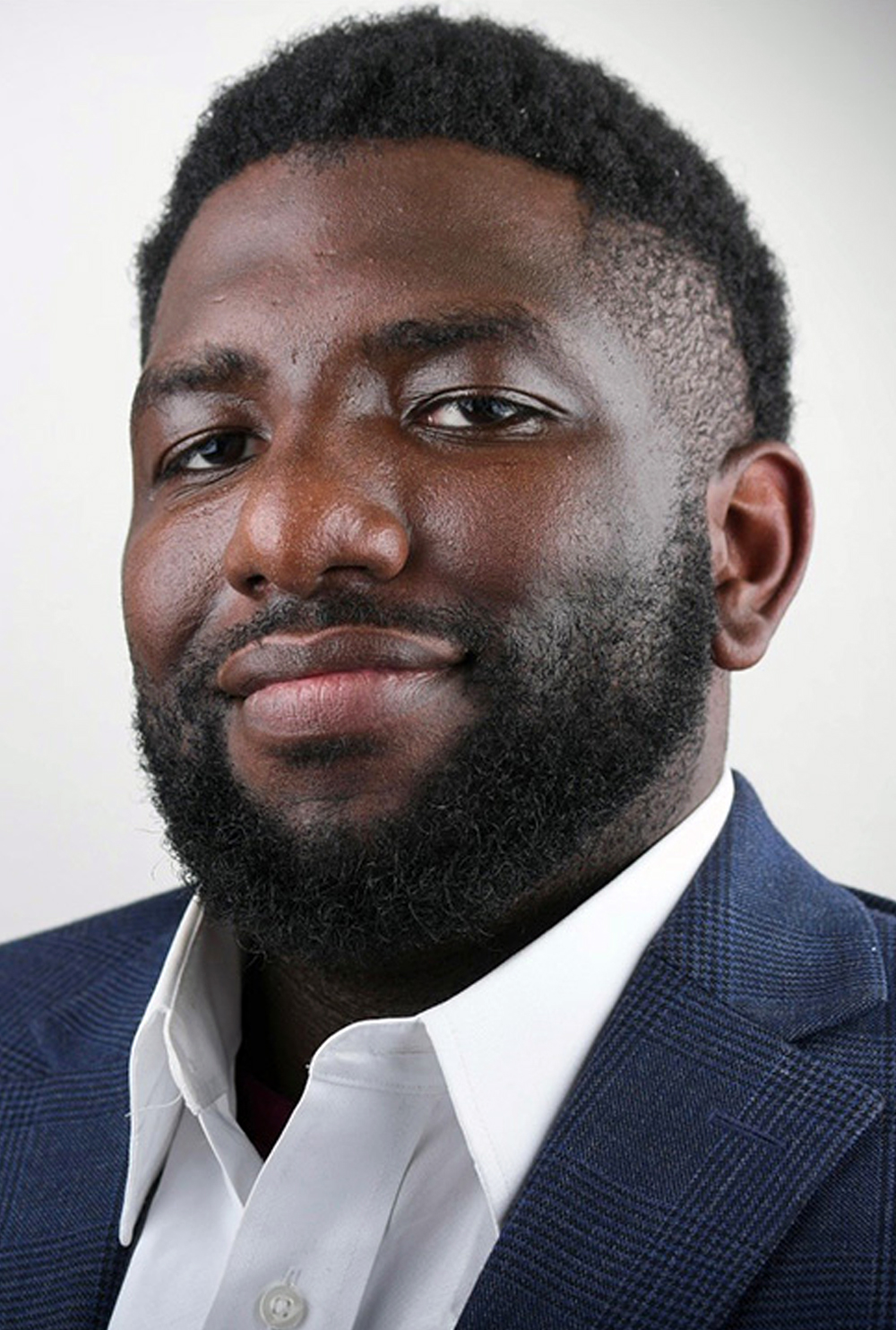
2023 Texas A&M University chemistry Ph.D. graduate Dr. Quentarius Moore has been selected by a committee of United States Department of Energy Computational Science Graduate Fellowship (DOE CSGF) alumni and friends to receive the 2024 Frederick A. Howes Scholar in Computational Science Award.
Established in 1991 in honor of Howes, who managed the DOE Applied Mathematical Sciences Program and was a staunch advocate for the CSGF prior to his untimely death at 51, the prize is awarded annually to one or two recent fellowship alumni in recognition of their research accomplishments and outstanding leadership, integrity and character.
Moore, a 2017-2021 fellow, earned selection along with fellow DOE CSGF alumnus Dr. Kyle Bushick, a 2019-2023 fellow. Each will deliver a lecture and receive an honorarium and engraved award at the July DOE CSGF Annual Program Review in Washington, D.C.
After earning his Ph.D. in chemistry from Texas A&M, Moore joined AMD as a software development engineer focused on graphics processing unit (GPU) programming, machine learning performance and high performance computing support for the DOE national laboratories.
"[Quentarius] has made substantial and varied contributions across his communities, demonstrating initiative and courage in addressing challenges," the Howes judges wrote. "He exemplifies the kind of scientific excellence and leadership that Fred Howes encouraged in all young scientists."

During his Ph.D. research in the Department of Chemistry and National Science Foundation Center for the Mechanical Control of Chemistry with advisor Dr. James D. Batteas, Moore focused on mechanochemistry, or how friction, bending and other physical forces affect materials. Moore wanted to know how graphene, a two-dimensional form of carbon, and molybdenum disulfide react with other molecules. Much of the latter research was in collaboration with Dr. Michael Chandross at Sandia National Laboratories in New Mexico, where Moore completed his DOE CSGF practicum.
At Texas A&M, Moore used codes like Fortran-based Quantum Espresso on GPUs to simulate large mechanochemistry processes. With the guidance of Dr. Noah Wolfe, he used the application to test Fast Fourier Transform for AMD’s MI250 GPUs, recently deployed in Oak Ridge Leadership Computing Facility’s Frontier.
Throughout his chemistry career, Moore has participated in local chapters of the National Organization for the Professional Advancement of Black Chemists and Chemical Engineers (NOBCChe), which supports its community with conferences and networking opportunities. Moore met Batteas after presenting at a regional NOBCChe conference, and at Texas A&M, he helped bring to life projects such as the chapter’s Percy Julian Awardees Exhibit in 2018, highlighting the accomplishments of Black chemists.
Moore also has volunteered regularly at the Lincoln Recreation Center in College Station, working with youth and older adults. There, he shared his lifelong love of chess with kids and started a scholastic chess center. The center presented him with the 2024 Martin Luther King Jr. Service Award.
Learn more about the Howes Award and DOE CSGF program, both of which are overseen and managed by the Iowa-based Krell Institute.
For more information about current projects in the Batteas Research Group, visit https://www.chem.tamu.edu/rgroup/batteas/.
